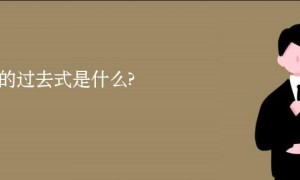bite
- 词义辨析
- bite in, bite on
- bite, chew, gnaw, nibble, snap
- bite,chew,gnaw,snap
这两个短语共同的意思是“咬”。在表示“被咬的部位”时,用介词on或in引出都可,用on指咬住,伤及表皮,而用in则指咬入肉里。
这几个词都有“咬,嚼”的意思。它们的区别在于:bite 是“咬”,即用牙钳住或切断; chew 是“嚼”,即用牙磨碎; gnaw是“啃”,即不断啮咬,例如:
The dog was gnawing a bone.狗在啃骨头。
He was gnawing at his fingernails.他在咬指甲。
snap 是突然猛咬,例如:
The dog jumped and snapped at his throat.那条狗跳起来猛咬他的喉咙。
nibble 是“小口地啮咬”。
例如:She nibbled at the biscuit.她一点点地咬饼干。
这些动词都含有“咬、啃”之意。
bite指用牙齿钳住或切断,或咬一口。
chew指用牙磨碎。
gnaw指连续不断用齿咬。
snap指突然猛咬。
- 速记技巧
词源词根法
来自PIE*bheid,咬,撕,词源同bit,boat.来源于史前日耳曼语,在古英语中为bitan。=【同源词】beetle,bit¹,bitter
- 近/反义词
- 近义词
- 知识拓展
单词解说
1、bite的基本意思是“用牙齿或牙齿类物攻击”,一般译为“咬”,指用牙(尤指门牙)短暂性地、猛烈地咬入某物,将其咬住、咬透或咬掉,也可指“咬伤”。引申指“某种非凡的力量牢牢抓住、刺透、刺入某物”。用于比喻可指“上钩,上当”。
2、bite的主语可以是人或动物,如狗、蚊虫等,也可以是物,如车、辣椒等,其宾语可以是人,也可以是物。
- 双语例句 更多例句
-
1、
-
2、
-
3、
Chris would have been well advised to heed the old saying "Never bite the hand that feeds you."
克里斯本应听从那句老话——“千万不要恩将仇报”。
来源:《柯林斯高阶英汉双解学习词典》 -
4、
找机会建议她谈谈这事儿,但是小心她可能会因为你多事儿而大发雷霆。
来源:《柯林斯高阶英汉双解学习词典》 -
5、
-
6、
Rubbing this special cream into the insect bite will help to take away the worst of the pain.
把这种特制油膏揉搓在虫子咬过的地方可以大大减轻痛苦.
来源:《简明英汉词典》 -
7、
Any dog bite, no matter how small, needs immediate medical attention.
被狗咬后,不管伤口多小,都必须立即就医。
来源:《柯林斯高阶英汉双解学习词典》 -
8、
-
9、
-
10、
-
11、
-
12、
-
13、
She can be a bit tetchy but her bark is worse than her bite.
她脾气可能有点暴躁,但她是刀子嘴,豆腐心。
来源:《柯林斯高阶英汉双解学习词典》 -
14、
The teams have that extra bite when they are playing against their neighbours.
这几支队伍与其邻近地区队伍交手时锐气更盛。
来源:《柯林斯高阶英汉双解学习词典》 -
15、
The cavalry commander predicted that many Sioux would bite the dust if they attacked the fort.
骑兵指挥官预言,如果苏族人进兵要塞,他们中有很多人会被打死.
来源:《简明英汉词典》 -
16、
-
17、
-
18、
-
19、
-
20、
-
21、
-
22、
-
23、
-
24、
-
25、
-
26、
I made him what I thought were several tempting offers, but he wouldn't bite.
我向他提出一些自以为动听的建议, 但他不肯上钩.
来源:《简明英汉词典》 -
27、
- 相关词组
- 相关阅读
-

单词百科:uninhibited是什么意思?uninhibited怎么发音?uninhibited的解释和用法
美加网 · 英语词汇
-

Macron slumps in polls as realities of office bite
美加网 · 双语新闻
-

backbite的过去式是什么?backbite的用法和例句
美加网 · 英语词汇
-

单词百科:orbiter是什么意思?orbiter怎么发音?orbiter的解释和用法
美加网 · 英语词汇
-

bite的过去式是什么?bite的用法和例句
美加网 · 英语词汇
-

单词百科:frostbite是什么意思?frostbite怎么发音?frostbite的解释和用法
美加网 · 英语词汇
